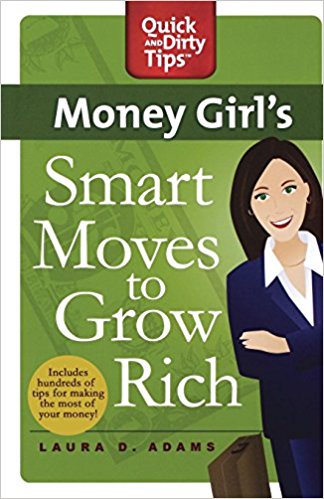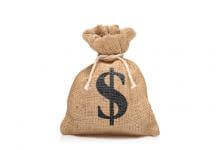What Every First-Time Home Buyer Should Know
Money Girl answers 6 common questions from first-time home buyers. How to know when you should buy your first home and how much money you will need.
Buying a home is a big decision. Not only is it a huge financial investment, but it’s a place where you’ll become a part of the community, interact with neighbors, and perhaps raise children.
In this episode, I’ll answer 6 common questions from first-time home buyers. You’ll find out how to get started, what you can afford, and how to navigate important parts of the home-buying process.
Buy Now

Click here to subscribe to the weekly Money Girl audio podcast—it’s FREE!
Sponsor: Squarespace, the all-in-one platform that makes it fast and easy to create your own professional website, e-commerce site, or online portfolio. For a free trial and 10% off, go to Squarespace moneygirl and use offer code MoneyGirl11.
Question #1: Why should I buy a home, instead of renting?
Most of us start out as renters because it doesn’t require a big upfront financial investment. But the downside to renting is that your monthly payments are a pure expense. In other words, once you make them, they’re gone forever.
On the other hand, when you own a home, there are some nice financial perks, such as:
- A portion of each payment reduces your outstanding loan balance each month, if you have a fixed-rate mortgage.
- Your mortgage interest and property taxes can be deducted from your taxable income each year.
- The market value of your home may rise over time, allowing you to build equity.
See also: Should You Rent or Buy a Home?
Additionally, when you own a home, you can have the lifestyle you want, spread out, and express your personal style. However, you’ll be responsible for maintenance and many unexpected expenses.
Question #2: When should I consider buying a home?
The right time to consider buying a home is different for everyone. But here are a few important questions that you should ask:
- Do I have good credit?
- Can I demonstrate 2 to 3 years of steady income from a job or business?
- Can I afford to pay a mortgage, taxes, and insurance every month?
- Is my current income likely to continue or increase?
- Do I have enough saved for a down payment? (See more about this below).
If you answer “yes” to these questions, you’re probably in a good position to seriously consider buying a home.
Question #3: How much down payment money will I need?
How much down payment you’ll need depends on several factors, including the price of the home, the type of mortgage you get, and customary closing costs for buyers in your market.
In general, you need enough cash in the bank to cover 3 costs:
-
Earnest money – this is the good faith deposit you make on a home when you submit an offer. The customary amount varies depending on the market, but might range from 1% to 3% of the offer price. If your offer is accepted, the funds are applied toward your closing costs. If not, your earnest money is returned to you.
-
Down payment – this is the percentage of the home price that you must pay at closing. The more you put down, the lower your mortgage payments will be. Some loans require you pay 10% to 20% of the purchase price. Other loans designed for first-time home buyers, such as an FHA loan, may only require 3% down or less.
-
Closing costs – these are fees you must pay at the settlement, such as lender charges, an appraisal, survey, inspections, attorney fees, taxes, title insurance, and any other processing expenses. You should receive an estimate of your total closing costs from your lender, so you aren’t caught by surprise.
Question #4: What financial programs are available for first-time home buyers?
The U.S. Department of Housing and Urban Development (HUD) and one of its agencies, called the Federal Housing Administration (FHA), work to make buying a home affordable for more Americans.
With an FHA loan, you don’t need excellent credit or a high down payment to qualify.
The FHA has helped more than 30 million people become homeowners since 1934. They don’t actually make loans, but insure them so if a buyer doesn’t make payments, the lender will get their money. This encourages lenders to give mortgages to hopeful home buyers who might not qualify otherwise.
With an FHA loan, you don’t need excellent credit or a high down payment to qualify. The loan limits for a single family home vary throughout the country, ranging from $115,200 to $208,800.
Ask your lender for details about FHA programs for first-time buyers. Or contact a HUD housing counselor for free or low-cost advice about your options.
Question #5: How much house can I afford?
Check out the How Much House Can You Afford Calculator at bankrate.com to see what price works for your budget. If what you can afford is significantly less than the average cost of homes in your area, then you might need to wait until you can pay a larger down payment.

- Principal – is the repayment of the amount you borrowed.
- Mortgage Interest – is the payment to the lender for the use of the money you borrowed.
- Home insurance – protects you and the lender against damage from many (but not all) natural disasters, theft, vandalism, and legal hazards.
- Property taxes – are annual city and county assessments
Taxes and insurance can be rolled into your mortgage payment and then paid by your lender on your behalf. Additionally, you’ll have to pay utilities, maintenance, and perhaps homeowner association dues if your home is in a gated community.
Question #6: What should I expect at the home closing?
A home closing is where all your fees and costs of buying the property are finalized on the Settlement Statement, Form HUD-1. It’s your last opportunity to make necessary changes to your paperwork. So don’t hesitate to ask questions about charges that you don’t understand.
The closing agent will have a stack of documents for you and the seller to sign. You can handle it in person or remotely through the mail. The mortgage and deed will be recorded in the county records registry, you’ll receive a copy of everything (including the keys), and then you’ll be an official homeowner.
Get More Money Girl!
There’s a huge archive of past articles and podcasts if you type in what you want to learn about in the search bar at the top of the page. Here are all the many places you can connect with me, learn more about personal finance, and ask your money question:
- Google+
- Money Girl podcast on iTunes (it’s free to subscribe!)
- Email: money@quickanddirtytips.comcreate new email
Click here to sign up for the free Money Girl Newsletter!
Download FREE chapters of Money Girl’s Smart Moves to Grow Rich
To learn about how to get out of debt, save money, and build wealth, get a copy of my book Money Girl’s Smart Moves to Grow Rich. It tells you what you need to know about money without bogging you down with what you don’t. It’s available at your favorite book store in print or as an e-book for your Kindle, Nook, iPad, PC, Mac, or smart phone. You can even download 2 free book chapters at SmartMovesToGrowRich.com!
House question marks image courtesty of Shutterstock.
You May Also Like…








